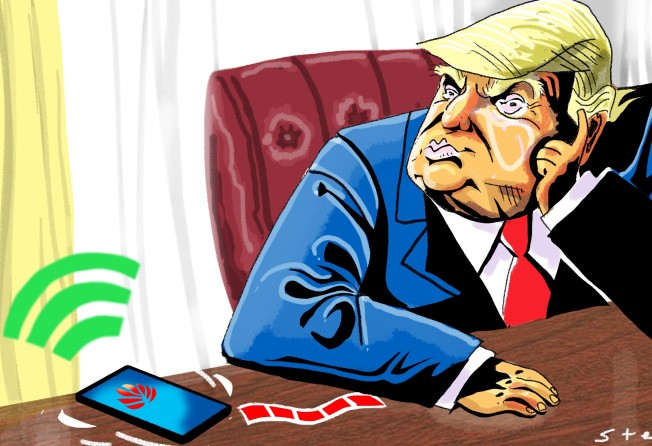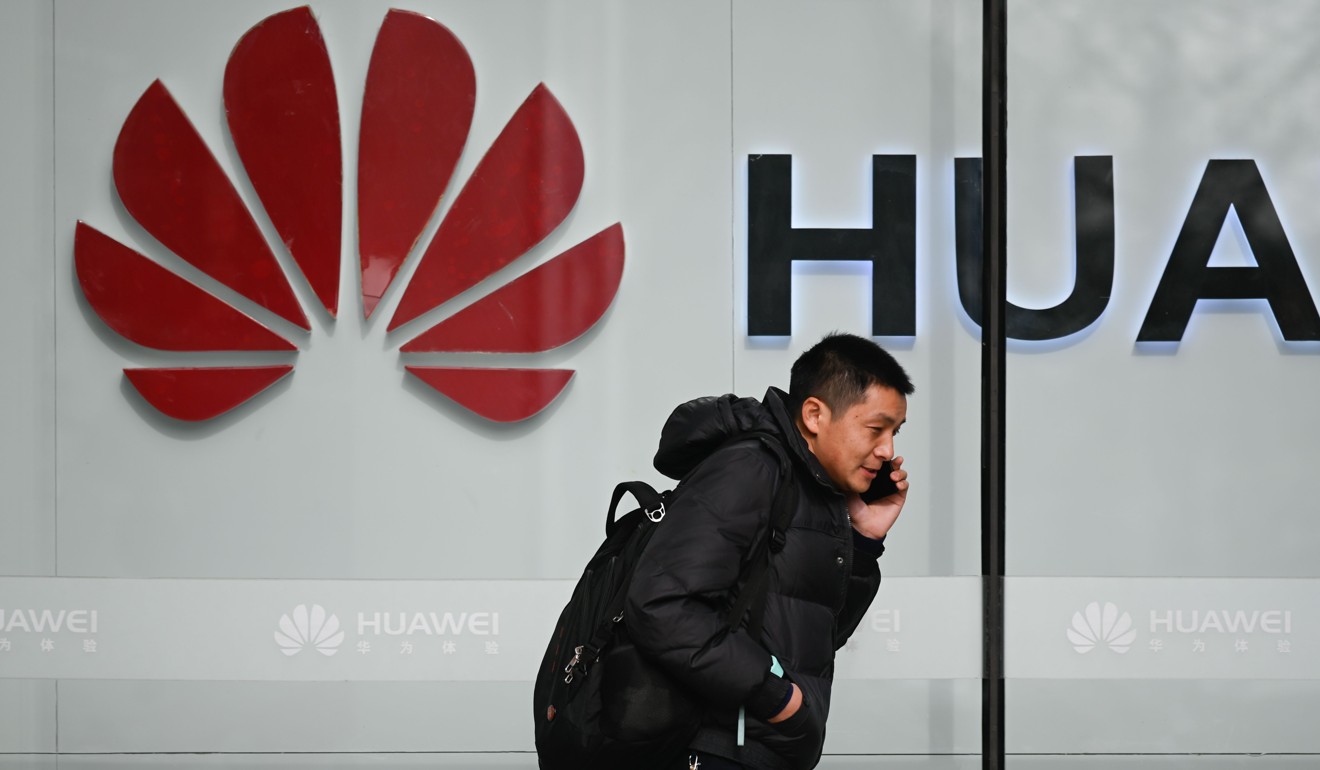Why a settlement with Huawei rather than cutting it off is in the US’ best interests
- As American allies like the UK and Germany seem unlikely to ban the Chinese telecoms giant, the US should capitalise on its current position of strength to negotiate an agreement that constrains Huawei’s ability to pose a security threat

Washington views the Chinese telecommunications equipment firm Huawei with deep suspicion, believing that the company can be used by the Chinese government to harm Huawei’s business partners and customers. Leading American officials are urging other nations to refuse to do business with the Chinese conglomerate. If Huawei does appear to be a security threat, however, is cutting off links to it the best way to manage the problem?
Under the administration of US President Donald Trump, there have been growing calls to “delink” the US and Chinese economies, to prevent China from leapfrogging ahead of America in advanced technologies through cyber theft and industrial policy.
American defence contractors are already forbidden by law from buying Huawei equipment, and some advocate a ban on all trade with Huawei, including the export of American made and designed parts that could help it become the world leader in 5G communications, the next generation of wireless and ubiquitous communications. Universities are being cajoled into excluding Chinese students from scientific work.
Huawei and its personnel have been taken to court in the US for allegedly committing crimes that include fraudulent acts to mask dealings with Iran that violated international and US sanctions.
The company’s chief financial officer and the daughter of its founder, Meng Wanzhou, was arrested in Canada and awaits the country’s verdict on the US request for her extradition. In the aftermath of Meng’s arrest, two Canadian citizens are being held on unrelated and unclear national security charges in China, which many suspect is Beijing’s way of pressuring Ottawa.
As the cases related to Huawei unfold, the stakes and costs are likely to get even higher. America’s close allies in Germany and the United Kingdom are signalling that they will not be rushed into banning Huawei from their markets, despite growing pressure from Washington.
As Canada’s consideration of the American extradition case plays out, experience suggests Beijing may find ways to increase its pressure on Ottawa, deepening Western suspicions that Huawei is in fact an instrument of the Chinese state.
Before it becomes too late, it might be worth asking a few questions about the implications of pursuing the Huawei case in the present mode. First, is delinking the US and Chinese tech industries the best way to constrain competition for the mantle of scientific and technical leadership?
Will America’s partners cooperate? Firms in Japan, Taiwan and South Korea sell huge amounts to China, as do Intel, Apple, Qualcomm, Micron and many others. China’s dependency on these suppliers is a source of vulnerability, as Chinese President Xi Jinping has said. Why would the US not want to deepen this dependence?
By ending the profitable transfer of equipment and services to China’s hi-tech industries, will the US and its partners effectively constrain China or will it empower the Chinese eventually to develop separate standards and foundational technologies that will Balkanise the hi-tech sector and potentially reduce the markets for US products?
Has the US lost self-confidence in its technical prowess, the strength and creativity of its academic institutions, and the power of its openness and competitiveness?
Xi Jinping is actually taking China backward, in the direction implicit in recent American policy moves, towards closing doors and minds, relying on state-owned enterprises that consume greater levels of capital to fuel diminished productivity. Why would the US want to follow him there?
Washington could devise a better approach based on its experience last year with the Chinese telecommunications equipment firm ZTE. Discovered to have reneged on pledges to reform its internal organisation and conform to international sanctions, the US cut ZTE off from American hi-tech suppliers and the company was at death’s door.
But on Trump’s directions, ZTE was permitted to negotiate a settlement that led to a US$1 billion fine, reorganisation of its management and controlled access to American products.
The leverage that Washington has today over Huawei is extremely strong, but judging from the reactions of US partners, such as the UK, Germany and possibly others, this may not be the case for long.

US policymakers should now consider allowing the Department of Justice to negotiate a settlement of its charges against Huawei that could address multiple objectives in exchange for giving Huawei access to the US and other markets:
- Reorganise internal management to include US-nominated officers responsible for the firm’s research and development and operations
- Give the US a veto over personnel in other sensitive corporate areas
- Impose fines to penalise Huawei for its past transgressions
- Put in place mechanisms and/or escrow funds against future misdeeds
- Offer conditional access to American hi-tech equipment and services
Before such a settlement is implemented, diplomatic channels should be used to ensure the release of the Canadians held by China, possibly in exchange for decriminalising the charges against Huawei’s chief financial officer. If Huawei or China refuses to come to terms, the current policy would play itself out at huge expense to Huawei and China, and potentially to the US.
Co-optation looks like a better outcome for all than cutting Huawei off.
Douglas H. Paal is vice-president for studies and director of the Asia Programme at the Carnegie Endowment for International Peace